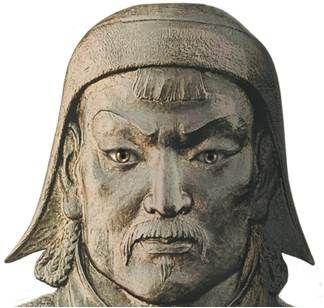Mark was a senior military officer given the responsibility for overcoming the bureaucratic lethargy, inefficiency and low productivity of a large Defence Department division. Mark exuded power, confidence and authority and he had enormous energy and drive. He had a reputation for taking initiative and for getting difficult tasks done quickly and creatively!
The difficulty was that, along with these strengths, he also had a restlessness  and impatience that often made him harsh and blunt in his communications. He could even be scathing if he thought someone was not competent or not achieving what he wanted when he wanted it. As he put it: “I do not suffer fools easily”. Also – though he never directly said this – his basic attitude was: “my way or the highway”! These were his “Achilles Heels” that accompanied his strengths.
and impatience that often made him harsh and blunt in his communications. He could even be scathing if he thought someone was not competent or not achieving what he wanted when he wanted it. As he put it: “I do not suffer fools easily”. Also – though he never directly said this – his basic attitude was: “my way or the highway”! These were his “Achilles Heels” that accompanied his strengths.
The result of all of this was that a culture of fear developed around him and worked its way down through the organisation. This was causing his people to become risk adverse, undertake “backside protecting” behaviour, and creating a culture of non-accountability – all actually reinforcing the bureaucratic lethargy which Mark was charged with overcoming. After a year of making very little progress with this charge, I was called in as a consultant to Mark and his leadership team.
I began this process by running a five day leadership workshop with Mark and his senior team. On the workshop we used a psychological profiling instrument, which identified each person’s natural strengths along with their potential Achilles Heels. On the fourth day of the workshop, I asked each member to read out the natural strengths of their profile – and their possible Achilles Heels – to the whole group, and for the group to give feedback on the accuracy of this.
Mark, being the most senior person, was first to read out the results of his profile and ask for feedback. All present confirmed his natural strengths – but also virtually all of his Achilles Heals. When mark listened to his people telling him how they felt (often devastated) by his manner of speaking to them, he was absolutely shocked. All his life he had been so powerfully initiative and action focused that he simply had no awareness of how he had been affecting his people.
At lunch, that day, Mark was very quiet and reflective. At a certain point he looked up at me and the others and he said: “you know, during the past 30 years I have used a number of different psychological profiling instruments and I’ve always found them interesting, sometimes even fascinating. But today for the first time I realised they’re actually important! Today I could see that my behaviour is actually working against everything I’m trying to achieve with the division.” I have noticed that people like Mark often need a major shock to awaken them to the need to change – but when they do awaken, the change is often quite sudden!
From that day forward, I have never seen anyone change so quickly. Almost immediately stories began to circulate throughout the organisation about how Mark had changed. The atmosphere of fear that had existed amongst his staff and his senior leadership team (the two teams he interacted with the most) disappeared almost overnight. This was gradually, cautiously replaced by one of trust and respect – which over the next six months worked its way down through the organisation. As a result, the transformational goals that Mark sought for his division began to occur quite rapidly.
What is your experience of the affects of leaders who inspire fear in the workplace?
Share your thoughts
You must be logged in to post a comment.